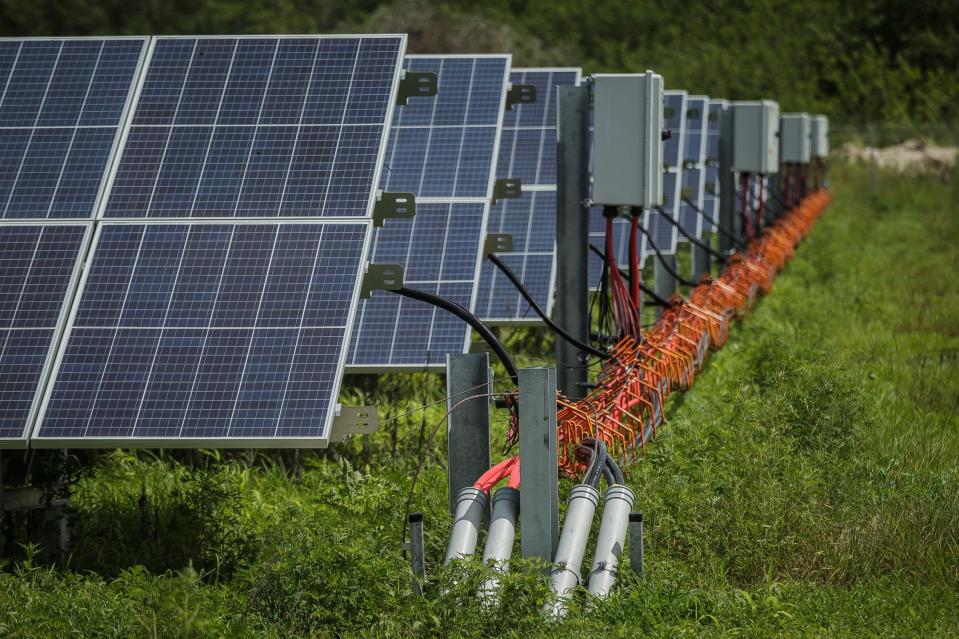Letters: More rooftop solar needed in Florida


More rooftop solar needed in Florida
The great cartoon by Andy Marlette on May 5 rightly ridicules Florida Power & Light for its failed effort to kill residential rooftop power. FPL routinely wastes our ratepayers’ money on manipulating politicians and self-promoting ads. But this money is a drop in the buckets of money it sends out of state to import climate-killing natural gas. I hope the Post will look into FPL’s other threats to the state, starting with siting its primitive-design nuclear plants and doubling the size of the water-polluting plant at Turkey Point. Instead, FPL on high ground inland should be building the advanced-design nuclear plants that are completely safe, clean, and needed when the sun does not shine.
While the colossal FPL’s goal is to maximize money paid to its owners and top managers, it is the homeowners and the environment that need state protection. Florida regulators should wake up to encourage more rooftop solar, also for big-box stores and other non-utility commercial buildings. The alternative — FPL’s excess profit-making from massive rate increases — is a waste that all citizens would have to pay.
Richard Emory, Boynton Beach
Rail safety grants a waste
What a waste of money. Brightline, since its inception, has been trying to do everything possible to prevent accidents and suicides. Now they're planning a $45 million program, to partially be paid through federal grants to make their railroad crossings safer. If people are stupid enough to drive around the barriers and despondent enough to commit suicide, no amount of money will prevent them from doing so.
Ilean Guthhartz, West Palm Beach
Taxpayers shouldn't pay people's peril
My husband and I have not been supporters of Brightline ever since its leaders first began informing the public of its plans. We attended a number of the meetings held in Palm Beach County to get answers to questions we had and to hear them explain the plans. Unfortunately, I never got an answer to my most important question: I needed to see actual proof that Brightline would be a successful, self-sustaining service.
To this day, Brightline has not convinced me or my husband that the expensive service is financially viable. Now I read about their request to receive $25 million in federal funds to reduce the number of deaths on Brightline tracks. The Florida Department of Transportation will kick in another $10 million.
It seems to me that the only 100% way to prevent these deaths comes from those who cause their own deaths by being on the tracks when and where they shouldn’t be. It is not Brightline trains that cause the deaths; and it is not the taxpayers' fault that some individuals make bad choices and cause their own deaths. Perhaps Brightline could outfit their locomotives to prevent deaths of people who choose to take chances with their lives. Or maybe people just need to stop putting themselves and others in peril.
Cathy Yonkers, Jupiter
This article originally appeared on Palm Beach Post: FPL's net metering bill veto a boon for solar power in Florida

